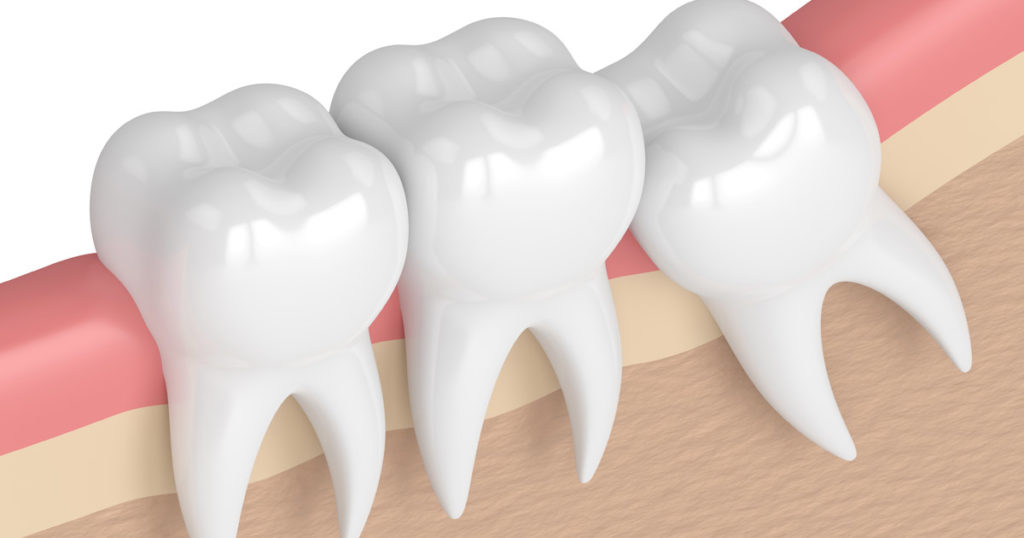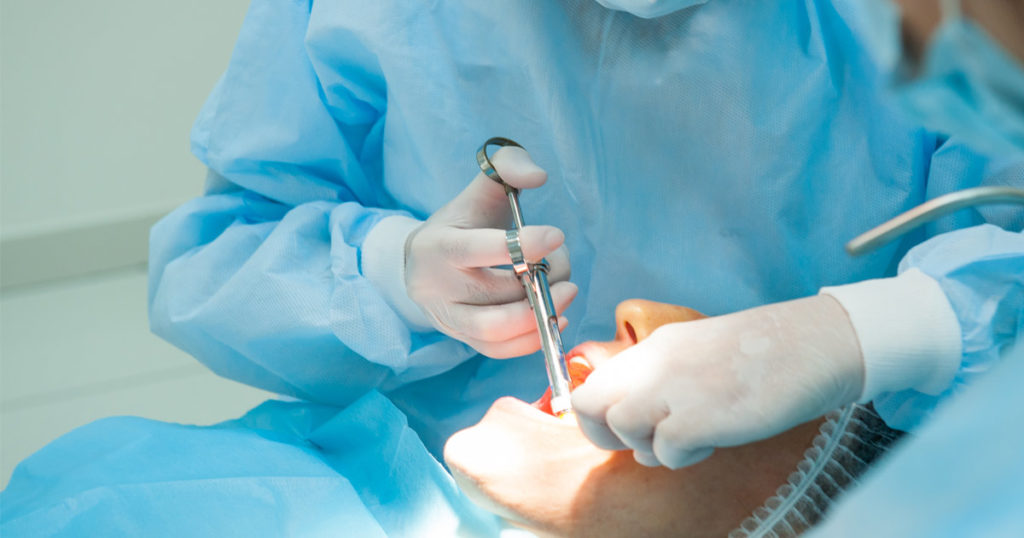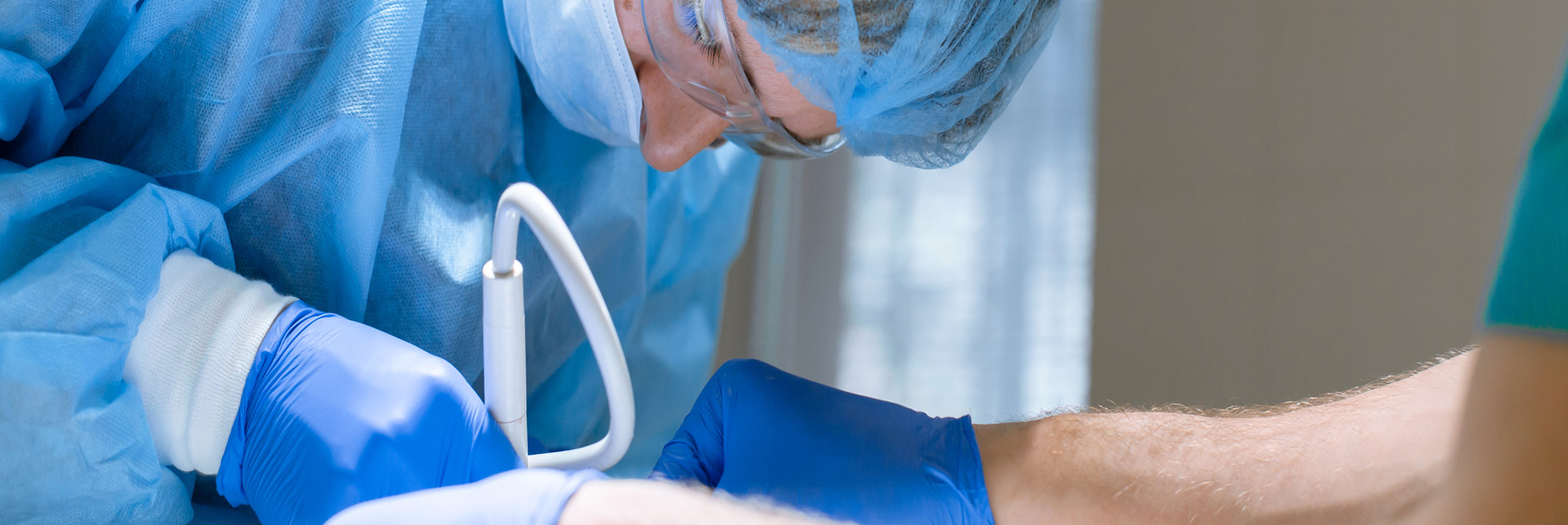Franklinville Oral Surgeons
Oral surgery is common and necessary for certain conditions. Most are routine and do not adversely impact a patient’s daily routine. While there are exceptions, in most cases, surgery is performed in an outpatient center and the patient is fine to return to their regular routine the following day. There are various types of oral surgeries that treat specific ailments in the mouth and jaw. They range from simple to complex procedures and include the following:
Tooth extraction: This is common and addresses disease, trauma, or an overcrowded mouth. Teeth that appear above the gumline can be easily removed with forceps. However, when bone or tissue is involved, they must be cut to remove the tooth. Stitches will be required afterwards in those instances.
Prosthodontics: This covers a variety of aesthetic procedures, such as reshaping teeth, so that they will accept crowns, veneers, or bridges. Another example is the surgical insertion of dental implants for mounting artificial teeth or dentures.
Oral and maxillofacial surgery: This is the most complex of oral surgeries and will involve corrective jaw surgery, dentoalveolar surgery, pre-prosthetic bone augmentation and nerve repositioning, and maxillofacial implants.
Sleep Apnea treatment: While there are mouthguards and machines that can lessen the common symptoms of sleep apnea, oral surgery can correct the situation as well. A surgeon will remove excess tissue in the back of the throat to help clear the airways, which will significantly reduce symptoms.
When Will I Need Oral Surgery?

Oral surgery is required when routine treatment cannot correct the problem. A skilled oral surgeon can handle most surgeries locally. Examples of conditions that require oral surgery include impacted wisdom teeth, where a surgeon will have to remove them to alleviate the problem. Gum disease can also be addressed through surgery, such as gum grafting, which involves placing new gums on an area that has little to no gums.
How Do I Prepare for Oral Surgery?
Preparing for oral surgery is similar to preparing for general surgery. Prior to the procedure, patients should heed the advice and suggestions of their surgeon on how to prepare. Steps patients should take prior to surgery include:
- Creating a clean and neat recovery space so that after surgery, they have a place to recuperate for a few days.
- Preparing a rest area so a person can sit at an incline in comfort.
- Following all pre-surgery instructions; most patients are asked to not eat or drink anything for about eight to 10 hours prior to surgery.
- Arranging for transportation to and from the surgery center; most surgeries involve anesthesia, which could impair a person’s ability to drive. A surgeon will let patients know ahead of time the type of anesthesia they will be receiving and if it is safe to drive afterward.
Prior to surgery, patients should also ensure that they have all the necessary paperwork filed and have undergone the required preliminary tests. There are surgeons who might require additional X-rays or certain blood tests.
What Should I Do on Surgery Day?
Dietary restrictions should be adhered to on the day of the surgery and the night before. Patients with diabetes and hypertension will be regularly monitored to guarantee their health for surgery. The length of time a patient remains at the surgery center will depend upon the type of surgery. A wisdom tooth extraction is a minimal procedure and should have the patient out within a few hours. Jaw surgery, on the other hand, could keep a person at the hospital for a few days. A surgeon will inform the patient ahead of time, so they can prepare.
What Happens After My Surgery?
Regardless of the surgery, a person will need time to recover. The more involved the procedure, the longer the recovery. During this period, a patient may have limits on the food they can consume and the method in which they have to consume it. In terms of managing pain, it will depend on the surgery. Intensive surgeries, such as those impacting the jaw, may require prescription-level pain medication. Pedestrian surgeries, such as a tooth extraction, should be manageable with an over-the-counter medication.
A surgeon will schedule a follow-up visit after the surgery and maintain communication with the patient. Patients should continue to follow their surgeon’s instructions and report any discomfort or problems as soon as possible.
Why Should I Use an Oral Surgeon?

Oral surgeons are specialists who can focus on several conditions related to the mouth and face. Dentists do not have the experience or training necessary to handle certain procedures. Oral surgeons can assist with problems starting with wisdom teeth to jaw misalignment and bone loss. They can also help treat chronic diseases or conditions that derive from issues of the mouth, such as gum disease.
Franklinville Oral Surgeons at Lanzi Burke Oral & Maxillofacial Surgeons Perform a Variety of Oral Surgeries
If you are in need of oral surgery or require more information on the types of procedures performed, the Franklinville oral surgeons at Lanzi Burke Oral & Maxillofacial Surgeons will provide the treatment you need. Call 856-582-4222 or contact us online today to schedule an appointment. Located in Washington Township, Haddonfield, and Woolwich Township, New Jersey, we accommodate patients throughout South Jersey.

